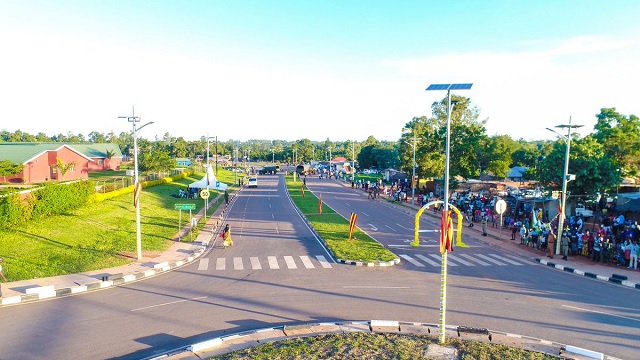
Kampala, Uganda | THE INDEPENDENT | Private land ownership during implementation of public projects is frustrating plans to adopt physical development plans for Gulu and Arua City.
Government working with Global Green Growth Institute-GGGI developed plans for the two cities in a bid to promote organized development and avoid challenges observed in Kampala.
Kampala is known for its poor urban planning characterized by poor housing, poor road infrastructure, poorly planned business centers, residential areas and the disappearing green cover due to human activities.
During a meeting at Golden Tulip Hotel in Kampala, the question of land ownership was raised as a big challenge in urban planning. This is witnessed during construction of roads which often requires residents to offer part of their land.
The Arua City Senior Physical Planner Moses Findru, says that public projects are frustrated when land owners decline to offer part of their land to facilitate infrastructure development or when there is conflict on the demarcation of boundaries for the communally owned land.
Findiru says that unresolved questions on land management delays the implementation of projects.
Godfrey Kisekka, the Town Clerk of Gulu City says they were forced to make adjustments in one of the Uganda Support to Municipal Infrastructure Development (USMID) program projects because they could not secure land from the locals. He said that they were forced to dismantle its walkway because of a conflict arising from land.
He says the discussion around revising the land tenure system to provide for state ownership of land rather than individual and customary should be revived.
Unlike in countries like Tanzania and Rwanda where land is owned by the state, in Uganda, land can also be owned by a single individual or a community.
Arua and Gulu City are among the five cities that government and GGGI are implementing the 45 million euro European Union funded Greening Uganda’s Urbanization and Industrialization project.
Dr Ronald McGill, the project team leader says that under the project, they have developed physical development plans for Arua and Gulu districts which they hope that funding for their implementation shall be mobilized soon.
McGill says that they have also written more than six development proposals in the areas of infrastructural development, housing, energy development and others which are yet to attract funding and investment from local or international donors.
Dagmar Zwebe, the Country Director for GGGI says that GGGI maintains the policy of non-interference in land acquisition and compensation. She says government is expected to address land acquisition matters in all projects that require the resource.
Abraham Muwanguzi, the Manager Science and Technology at the National Physical Planning Authority, says the plans shall enable government avoid the Urban Planning challenges experienced in Kampala. He says that they have involved leaders at the local government level during the drafting of the plans and all the responsible agencies during the implementation of these plans.
The Greening Uganda’s Urbanization and Industrialization project is set to close in June 2024. Apart from the physical plan, through the project, a Waste Management Strategy for Greater Kampala Industrialization guidelines have been developed.
*****
URN
 The Independent Uganda: You get the Truth we Pay the Price
The Independent Uganda: You get the Truth we Pay the Price





